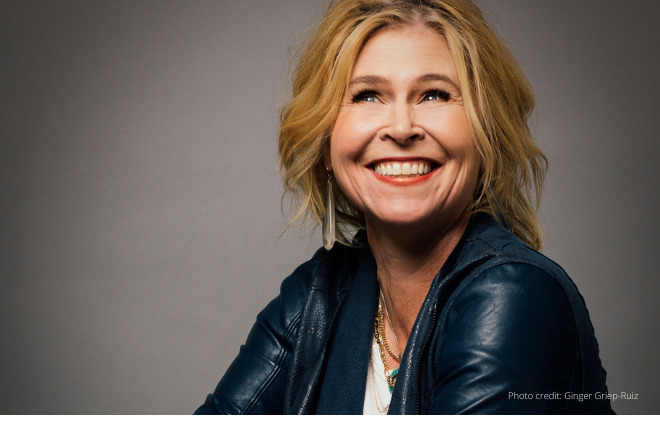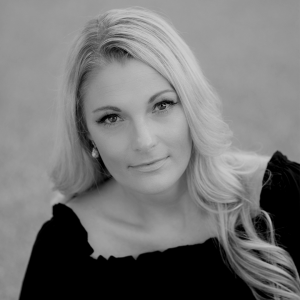
Krista Monson continues her interview with TheatreArtLife:
What advice would you give your 18-year old self?
Probably now I would say two things. Trust, really trust, and fight the good fight.
I was working in Istanbul last year with the United Nations and one of the speakers who was integrated into the production I directed was a Nobel peace prize nominee from Uganda named Victor Ochen.
You know how they recruit kids when they are 10 or 12, pump them with drugs, and give them a gun as recruiting method in some African countries? This is the type of choice, if you could call it that, Victor faced as a young boy. He refused to join the armed forces because he believed in a more peaceful way of solving conflict. Even after losing his own brother to abduction by the armed forces and never seeing him again, Victor rose from bitterness and anger and dedicated his life to forgiveness and peace.
I was surrounded by truly courageous people and I felt humbled. The artistic concept of the show involved ‘affected’ speakers: a man that had his leg blown off in Syria while still helping save people from under rubble, a woman who saved her family from devastating typhoon in the Philippines, and Victor Ochen. Each was coupled with celebrity speakers Forrest Whitaker, Ashley Judd and Daniel Craig who spoke about rules of war, gender equality and refugees.
It was so intense, the rehearsal process, the content…
Near the end of rehearsals, these six people (three affected and three celebrities) arrived for their mic and teleprompter checks at midnight and since we were on a tight schedule, we would say, “here’s your mic, here is your teleprompter, here is your script, these are the angles we are going to shoot, etc.”. Victor Ochen walked in to this intense environment with the energy of a saint.
Towering at 6’4” tall, he looked down with his deep eyes. His laugh was warm and hearty. At the end of the event he said to me, “Keep fighting the good fight.” I interpreted this to say save some energy for fun and laughter. With what he had lived through, I trusted his words.
So that’s what I would probably say to myself. Save a little bit more for joy. Generating creativity is not always glorious. You are trying to dig deep and I find it hard to achieve that balance between the joy and the hard work of creating something new. I always have doubts, but I am trying harder to pursue my work with joy, because creativity can come more naturally through love of your experience, I think. Trust your instincts and your curiosities, and most importantly trust yourself. If you don’t know what you’re passionate about, follow what you are curious about.
I think passion is an overly used word. Author Elizabeth Gilbert said, “I ask people to ask themselves what are you curious about as opposed to what are you passionate about.”
Kids don’t know what they are passionate about when they are young, but they do know where their curiosity takes them. Keep curiosity and fight the good fight. And then put your pencil down and go have some fun!
What a great opportunity to meet all of these amazing people. We sometimes complain of “champagne” problems or first world problems, but when people are faced with true adversity and come out stronger, it is really incredible.
You know, this is what I want to do and I would say One Night for One Drop really started it for me. You asked how I keep the humanity in my work. I would never say that I am a “social creator” but probably the humanity starts there.
I want to discover who you are, what are you about, and what struggles have you faced. Visual spectacle is magnificent but we want to see vulnerability and risk on stage. One Drop was interesting because it was about this balance between this resonating message about water and lack of water, this cause, yet it has to be a kick ass Cirque du Soleil show. It is not a sermon. If we want to read a brochure, then we will pick up a brochure. The permission I got as I was looking for direction on how to strike that balance was that it’s ok if some don’t get the deep meaning, the impact of a show can and will be individual.
It’s fascinating how art fits with social causes.
It was a coincidence to receive the call from the UN to creatively direct the first World Humanitarian Summit. They didn’t call because of my work with One Drop, it was through a reference from a friend in Los Angeles who works with pop stars. When I heard the request to create the opening and closing ceremonies, I immediately thought of a sports field and waving flags. But with 3,000 world leaders and NGO leaders in the audience, we couldn’t have a hint of song and dance. The event had to be treated with extreme sensitivity yet with passion and creativity.
In opposition, the show that I am doing in Berlin is a wonderful commercial multi-disciplined revue. I was in Berlin meeting with my colleagues when the UN called me. I remember thinking the mandate for the UN and this opportunity are completely opposite on the spectrum. I did the project in Istanbul and I found great meaning so this is why, you know you were asking about creating shows – the acts, the concepts – even if it is artfully commercial for a mass audience, for me, I just can’t do it if it’s just something to look at.
Even if at the base or on the fringe, I hope for there to be meaning in what I create. What do we want to feel? I think about the human condition, and it is probably the overriding thing for me, is that I care about the human condition. Whether I’m working with A-list fashion designers, dance, comedians, acrobatics or world leaders, there is hopefully some sort of comment about the human condition and it’s my job to interpret it in a way that appeals to who are we speaking to.
At the end of the day, we are sharing a story made up of creators who each have their story influencing their work.
This man (Victor Ochen) telling his story about how his brother was abducted and never seen again by Ugandan armed forces, which you can imagine is not easy, but through sharing, perhaps it means that you have come to terms with parts of your life.
When I created my website, I had a designer friend who sat down with me to discuss the various site categories: about the person, gallery, contact, etc. She asked, what do you want to put in the “about” section, would you like to write about your family? My first instinct was to answer “of course not”.
I realized that on the one hand, I have the great privilege to interpret each project for this producer or that audience, but on the other hand, underneath that privilege, I had become pretty good over the years at editing out parts of myself in order to please clients. The underbelly of interpreting is that you end up being a very good people pleaser and so when you decide to expose yourself for everyone to see, it’s scary. I can talk to a mother as a mother when we are waiting at the bus stop chitchatting about what’s for dinner tonight. I can do that because it is a part of my reality. But I am not necessarily going to share that I was working until 3am at ‘O’ doing automation cues or been away from my family for two months because I would receive some weird stares. I could control what people know.
And so when I had to think about the website, as much as it is just a website, that really hit me in the face. My designer friend kept emphasizing that it’s alright to share, it’s you. I realized that I had lived with a little bit of a burden of this stereotype, oh, she’s the mother type, and I didn’t want it to be the case with me. It was probably a falsehood on my part. But I am a crazy artist too.
I feel like often in the industry, people are over-sharers and in my mind, I felt like I didn’t want to do that, so I probably compensated in the opposite direction by rarely bringing in my personal life. So, then all of a sudden when you are asked to put something on a website that you know is exposed to everyone, it was really a very difficult thing for me. It’s fascinating this idea of sharing.
It’s fascinating that you are so great at sharing other people’s stories and you are so interested in the human side of people that you meet but on the other hand, it is really difficult to share your own story.
I am a walking paradox. I am interested in everyone else, I hire people because of their story and their humanity but I am so conflicted when it comes to sharing my own. It’s hard.
Follow Krista Monson on Twitter
Follow Krista Monson on LinkedIn
Return to Krista Monson: Exploring Humanity & Finding Meaning, Pt 1
Return to Krista Monson: Exploring Humanity & Finding Meaning, Pt 2
Also by Ashley Sutherland-Winch:
Operations Director In Paradise: Jamie Sullivans Journey to JOYÀ
Take A Deep Breath And Other Tips For Entry Level Creatives


Ashley Sutherland is Co-Founder of TheatreArtLife. Originally from Birmingham, Alabama in the United States of America, Ashley works in marketing and public relations specializing in the entertainment and healthcare fields. She is also a board certified and licensed Athletic Trainer. She holds a Bachelor of Science degree from The University of Alabama and a Master of Science degree from Indiana University. Ashley has worked as a performing arts medicine specialist and certified Athletic Trainer on some of the world's top-rated productions in the world. Some of her credits include "The Beatles LOVE", "Mystere", "Viva Elvis" and "Kooza" by Cirque du Soleil, Michael Flatley’s "Lord of the Dance", "Blue Man Group", "Blast!, the "Radio City Christmas Spectacular" with the legendary Radio City Rockettes, and the Indiana University Ballet. Ashley passionately advocates for pediatric cancer. She sits on the Board of Directors for Circus Couture, a charity, fashion, art, and performance event raising funds for research and treatment for cancer, genetic disorders, and hemophilia in children at The Children’s Specialty Center of Nevada and Cure 4 the Kids Foundation in Las Vegas, Nevada. Ashley resides in New York City.
Read Full Profile© 2021 TheatreArtLife. All rights reserved.

Thank you so much for reading, but you have now reached your free article limit for this month.
Our contributors are currently writing more articles for you to enjoy.
To keep reading, all you have to do is become a subscriber and then you can read unlimited articles anytime.
Your investment will help us continue to ignite connections across the globe in live entertainment and build this community for industry professionals.